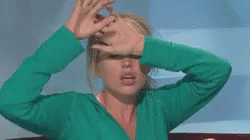I know no one agrees, which is fine, but if anyone’s interested in where I would take the storyform when going below Domains, I came up with the following. It’s not super strong, and I don’t like a lot of the storyform choices the below leaves me with, but again, it’s probably a broken story and I do like that I can see where I think the story is broken with this form (the OS is the strongest while the other throughlines feel anywhere from a bit weaker to a lot weaker within the story. But biggest problem of all, i decided that Bob feels like he grows rather than changes meaning there is no change character in my view). I don’t plan to discuss any further unless specifically called upon to do so.
OS Physics
Everyone is concerned with making supers legal. Winston is heading the effort (protagonist) and Evelyn is trying to make supers illegal forever (antagonist). The efforts to make supers legal leads to conflict with Screenslaver/Evelyn.
Although at a Genre level the story looks like it could be about about achieving, or Obtaining, legal status, the Plot is about how what they are Doing creates conflict. Elastigirl doesn’t go out on the street with an objective to Obtain, she is out the to protect the city (Doing) and this leads to the attack on the train. Putting Elastigirl on tv, catching Screenslaver (Doing by Obtaining), otherwise putting the supers in front of the public, and holding a summit on the hydrofoil all lead to various conflict with Screenslaver/Evelyn.
Bob values his own skills, while Winston would prefer the public to has a certain experience, particularly one the includes less structural damage. He wants to put camaras on the supers’ suits so the public can share in the supers’ experience.
The politicians and police are driven by the effects the supers have on infrastructure-esp. structural damage. Winston is driven to produce an effect on the public. Helen is driven by the effect her absence will have on her family. The solution is to prevent the hydrofoil from causing extensive damage by crashing into the shore.
Driven by effect, Winston is focused on how Gazerbeam and Fironic didn’t show up to save his father when called and Evelyn is focused on how her father didn’t take her mother immediately to the safe room. Winston tells Bob not to test the whole “insurance will pay for everything” idea. His whole idea is basically testing the supers to see if they can save the day responsibly.
Focused on test, Winston and crew put efforts into gaining back the public’s trust.
On their way to the goal, the Incredibles learn how to work as a team. The kids stop fighting over babysitting. Vi tells Bob she knows what to do, that she needs to wait on deck until she’s needed and not get in the way or whatever. At the end, Helen is okay with the kids going with them.
MC Mind
Bob thinks he should be the face of the project, that he should be the one supporting the family, which leaves him frustrated with his role.
Actually, Bob is easily frustrated (preconscious) by all sorts of things (they changed math, for one).
But he is driven to succeed, or be effective, at home so that Helen can succeed so that supers can succeed. He should eventually cause something, or be a cause or prevent a cause (personally, he helps prevent the hydrofoil from causing damage, but this doesn’t feel personal), or have a cause.
Driven to be effective, Bob should be focused on Unproven. He seems to be focused on how he’s more proven than Elastigirl? Or that she isn’t as proven as he is? In the end, he asks Helen “aren’t you going after (Evelyn)?” showing growth from being focused on his own proven ability to seeing her as having proven herself as face of the campaign (needs better wording).
IC Universe
Helen/Elastigirl influences others (or hopes to) through her situation as face of the campaign to make heroes legal. By wearing a suit-cam, she is giving others a view of the struggle. By Through her efforts, she is influencing the public to change the law thus influencing the situation/Universe of others. Her influence on Bob comes through her position as monetary provider for the family. She seems to want to bring things to an end. To stop Screenslaver, to stop being a hero and rush home at the first sign of trouble. There’s some line where she says something to the ambassador about bringing peace, and the ambassador replies “as soon as you end crime” or something. That doesn’t feel very strong, though.
RS (Parents) Psychology
The relationship grows or changes through conversations about whether its right or wrong to break the law, when Bob says he’s better at being a super, when Bob changes the way he parents, etc.

